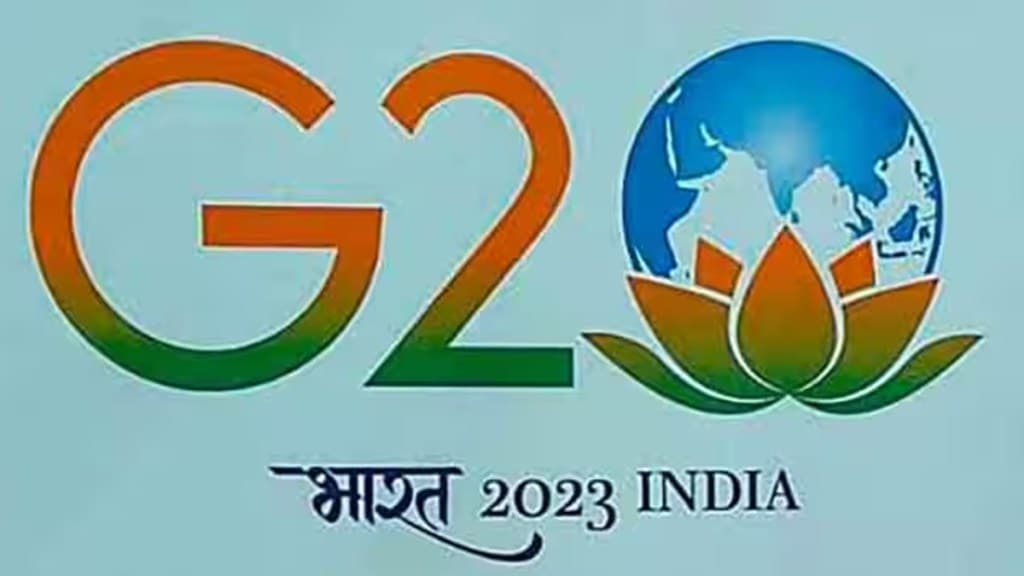By Archna Vyas and Hari Menon
India’s presidency of the G20 has arrived at a critical juncture in the world’s history, marked by a complex web of challenges and geopolitical tensions. Despite these daunting realities, India has harnessed its G20 leadership to champion a collective action that addresses global development challenges, with a particular emphasis on the aspirations and needs of the Global South.
At the core of India’s approach is the principle of Vasudhaiva Kutumbakam, a cultural ethos that underscores the idea that the world is one family. This guiding philosophy has enabled India to invest its political and diplomatic capital in building consensus on key priorities, focusing on accelerating progress toward the Sustainable Development Goals (SDGs), while making its presidency both inclusive and impactful. Under the leadership of prime minister Narendra Modi, India is helping shape consensus-based solutions for reviving global economic growth, reforming multilateral organisations to meet 21st-century challenges, intensifying climate action, bolstering global health infrastructure, and advancing food and nutrition security.
Significantly, gender equality has been placed at the forefront of India’s G20 agenda, with a vision for women-led development. A significant milestone has been the convening of G20 gender ministers for the first time, underscoring the importance of women’s leadership in critical themes such as climate change, entrepreneurship, the digital economy, grassroots leadership, education, skill development, and labour force participation.
India has embarked on a transformative journey in the digital realm, a journey that holds great potential and promise for the world. The ongoing digital transformation, based on the JAM trinity (Jan Dhan Yojana, Aadhaar, and Mobile), has significantly improved the quality of life for millions. It has resulted in the opening of over 50 crore new bank accounts, enabling the government to deliver subsidies, scholarships, and other financial entitlements, timely, efficiently, and accurately.
Earlier this year, our co-chair, Bill Gates, had recognised the opportunity presented by India’s G20 Presidency to showcase how Indian innovations can benefit the world. Supporting these efforts, especially in sharing India’s exemplary digital ID and payment systems to other regions, is a top priority for our foundation. India’s Digital Public Infrastructure (DPI), including Aadhaar and UPI, has played a pivotal role in providing inclusive, effective, and efficient access to public services. India is signing MoUs with several nations to share this knowledge for the greater good of humanity. The concept of the “One Future Alliance ” further demonstrates India’s commitment to assisting countries in developing DPI models tailored to their populations.
Significantly, at India’s initiative, the G20 digital ministers’ meeting adopted a framework for DPI, emphasising the importance of secure, interoperable, and open digital systems that promote universal access to services, with governance and community involvement as integral components.
The COVID-19 pandemic underscored the imperative of global coordination for rapid and equitable access to pandemic countermeasures, including vaccines, tests, and treatments. India’s G20 Presidency introduced the Global Medical Counter Measures Coordination Mechanism, which can revolutionise our collective ability to combat future pandemics through enhanced collaboration on research and development, medical countermeasures, and vaccine production networks.
Building on its success in DPI and public goods in health, India played a pivotal role in conceptualising and establishing the Global Initiative on Digital Health (GIDH), for equitable access to healthcare services, especially in remote areas. Hosted by the World Health Organization, the GIDH will bridge the global digital divide and accelerate progress toward Universal Health Coverage. By facilitating the seamless exchange of health information, GIDH can help create a repository of quality-assured digital health technologies, while avoiding duplication of efforts.
India has effectively galvanised the G20 platform to address global food insecurity and malnutrition, with a focus on responding to critical issues such as climate change and supply chain disruptions. The G20 Agriculture Minister’s Meeting committed to achieving Zero Hunger by 2030 through transparent, sustainable, and inclusive agriculture and food systems. India’s leadership has bolstered the collective commitment to enhancing policies and collaborative actions for climate-resilient and sustainable agriculture and food, including scaling up of responsible public and private investments in agriculture. Furthermore, India is actively supporting developing countries, outside the G20, in assessing their developmental priorities and needs related to agriculture, nutrition, and food systems.
With these transformative initiatives, India is not only shaping the global development agenda for the coming decades but is also amplifying the voices of the Global South. India’s inclusive and decisive leadership has strengthened the G20 and as it prepares to pass the baton to the next two G20 presidencies (Brazil and South Africa), it leaves behind a solid foundation for future leaders to build upon. India’s call for the inclusion of the African Union in the G20, if realised, will bring the new G21 closer to embodying the credo of “One World, One Family”.
India’s presidency of the G20 has been marked by visionary leadership and a resolute commitment to addressing global challenges. India’s legacy in the G20 will continue to resonate, fostering cooperation and solidarity among nations, as we strive to build a better and equitable world for all.
Writers are respectively, deputy director (policy and communication), and director, India office, Bill & Melinda Gates Foundation

